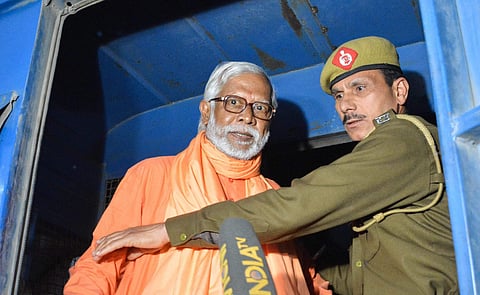

NEW DELHI/CHANDIGARH: The confessional statement given by Swami Aseemanand in the Samjhauta blast case was not accepted as credible evidence by the Special NIA court in Panchkula which on March 20 acquitted Aseemanand and others due to lack of evidence.
Aseemand had recorded his confessional statement under section 164 CrPc on January 15, 2011 but later retracted from it on May 12, 2011 claiming, he was tortured by NIA to make the statement.
While acquitting the accused, Special Judge Jagdeep Singh said corroboration of confessional statement is necessary if retracted but in this case, there was no corroboration of Swami statement given by Aseemanand to prove his guilt.
Citing judgments of the Supreme Court, the judge said retracted confession can be relied upon if it is found that retraction made by the accused was on a false premise. However, he added that there was “reasonable doubt” whether the confession statement in this case was voluntary.
Judge Jagdeep Singh said certain safeguards are to be followed to ensure that the confession is made voluntarily by the accused after being apprised of the implications of making such confession.
The court pointed out that Magistrate Rakesh Singh who recorded Aseemanand’s statement had not inquired from the accused since how long he was in police custody prior to 13.01.2011 when NIA moved the application to record Aseemanad’s statement. Also, the magistrate did not ask the accused whether he was in police remand at the time when he was produced before him, the court said, adding that Aseemanand had been in police custody for some 20 days prior to recording of his statement.
“Thus, from the circumstances leading to recording of the statement u/s 164 Cr.P.C. of accused Aseemanand before learned Magistrate and also in the light of the fact that said accused retracted from his statement at the earliest opportunity. A reasonable doubt may be entertained about the voluntary nature of the statement made by accused Aseemanand,” the judge concluded.